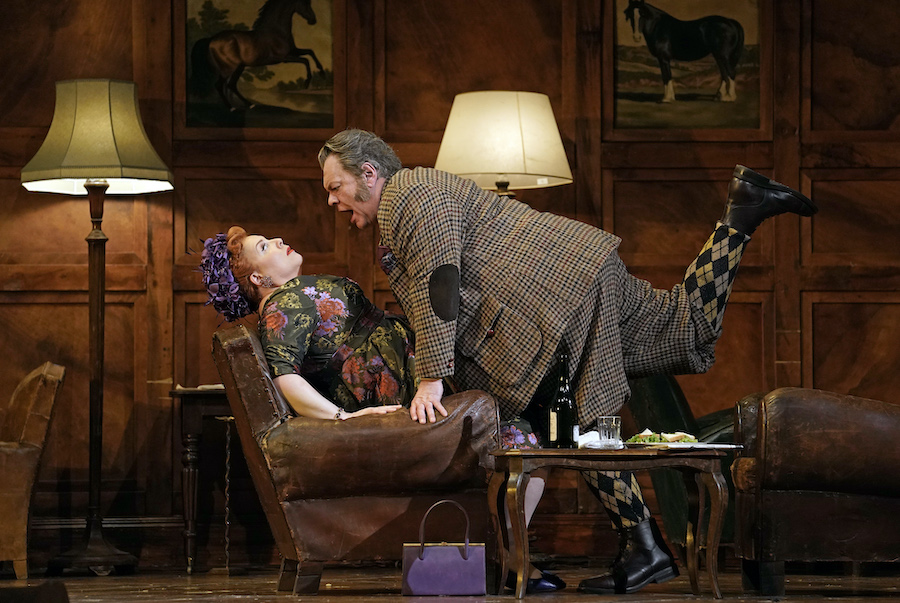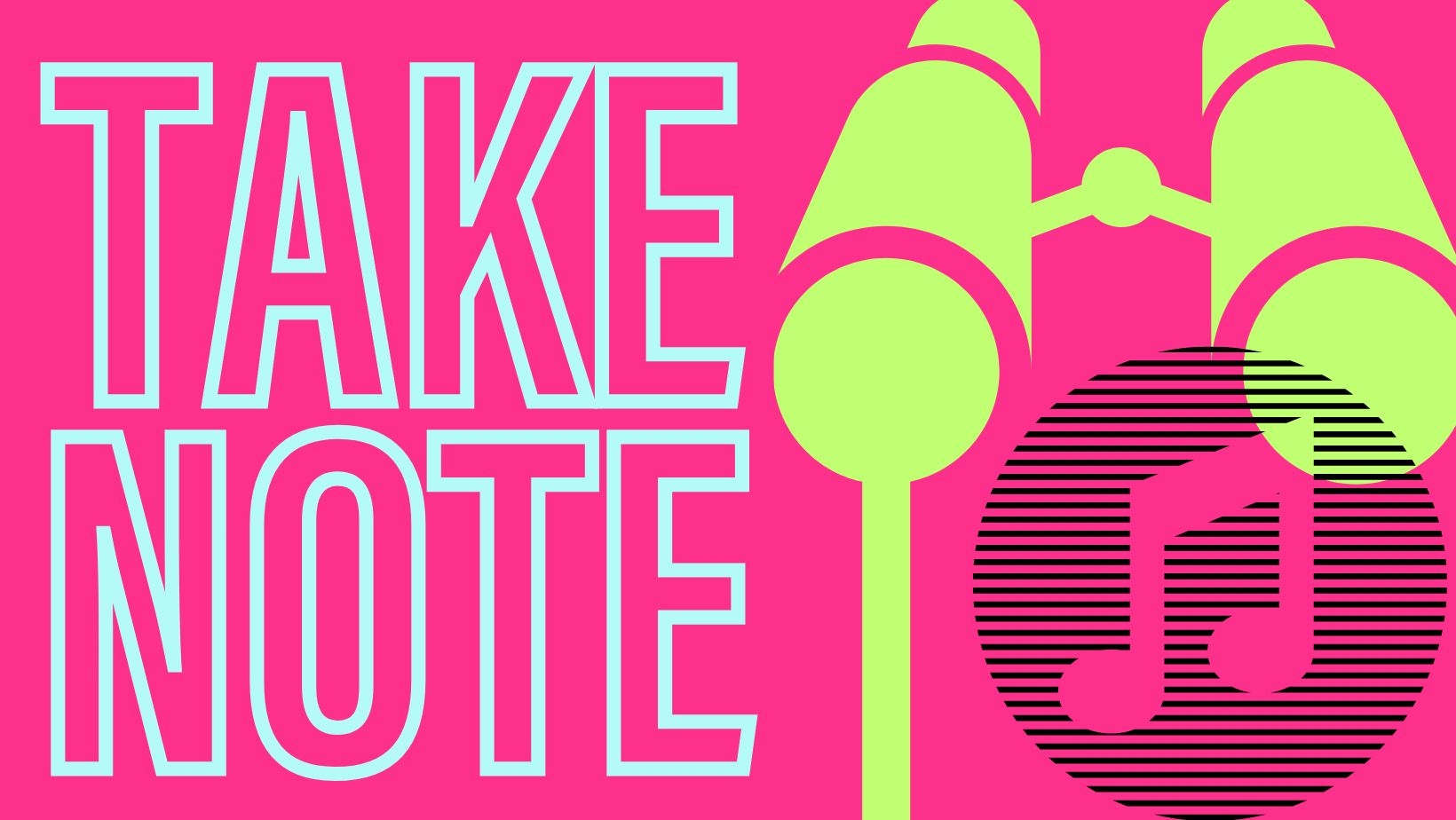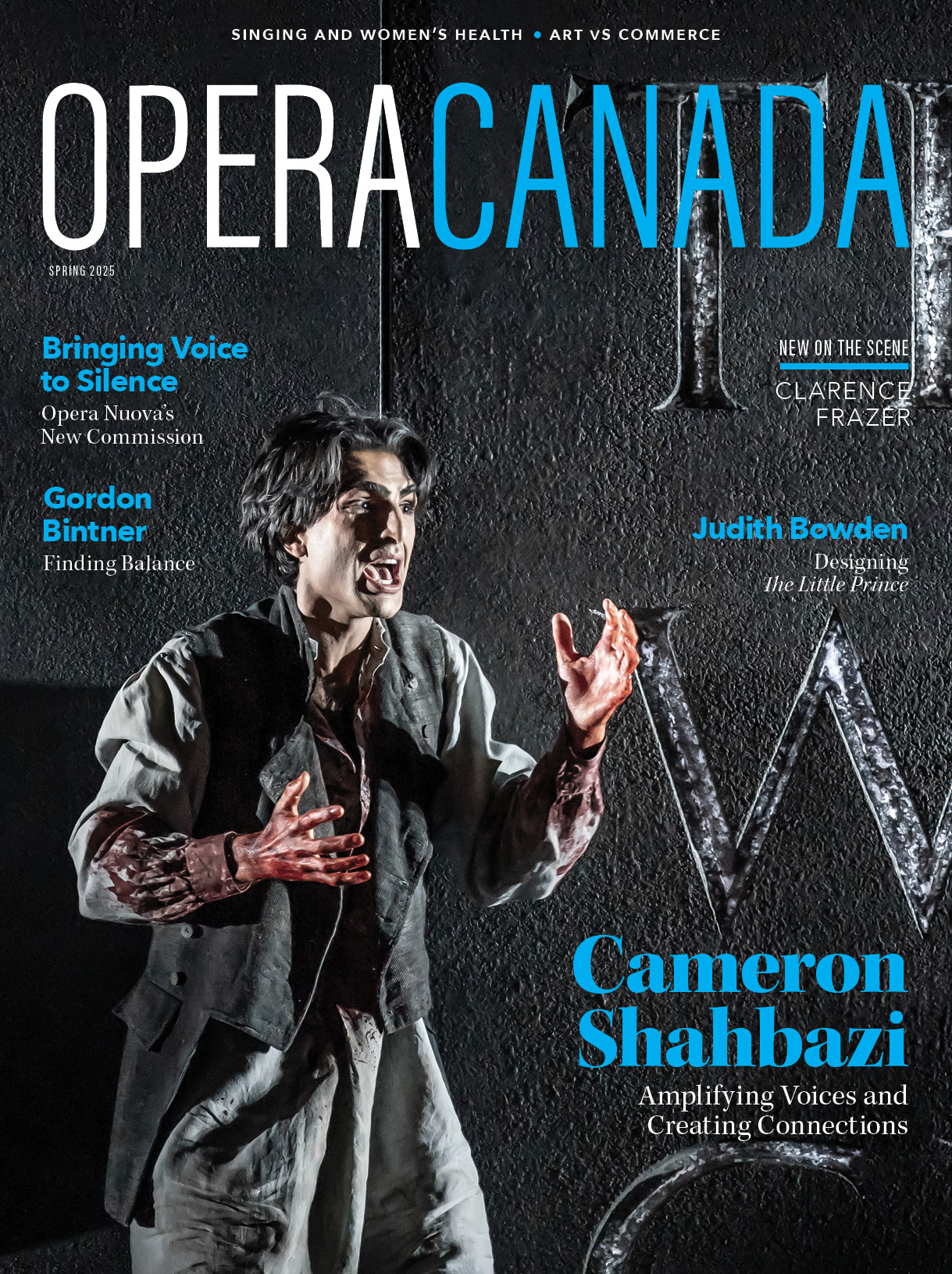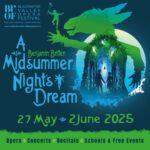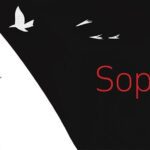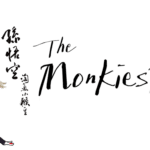Since its unveiling at London’s Royal Opera in 2012, Robert Carsen’s temporal transplant of Verdi’s Falstaff from the latter years of one Queen Elizabeth’s reign to the early years of another’s has delighted audiences in New York (2013), Amsterdam and Toronto (2014), and Milan (2015), and its current Met revival, the house’s second, proved no exception. (I caught the show on March 16.) It’s hard to resist Carsen’s clever time machine, what with Paul Steinberg’s lovingly detailed evocations of an upscale Garter Inn and the Fords’ spacious lemon-lime kitchen, all the fifties-modern conveniences in place, and Brigitte Reiffenstuel’s period-perfect costumes, handsome from hats to heels. Carsen keeps the action apace—sometimes at the expense of focus, with too many irrelevant bodies busying themselves in the Garter’s dining room and at the Casa Ford. And the final scene, which should unfold magically in the sylvan open air, just doesn’t work: “Questa è la quercia,” intones Sir John, but there’s no Herne’s Oak in sight, just two looming walls; “Pizzica, stuzzica,” the faux fairies sing, but Carson allows no pinching, poking, or even touching the superstitious fat knight; the set’s gradual metamorphosis into the chandeliered dining room makes scant sense; and Falstaff’s exit for a costume change makes even less. Still, in the spirit of the work, I forgave; and all ended, as it should, in great good cheer on both sides of the footlights.
The Metropolitan Opera assembled a fine, multinational cast, with only one native Italian—Carlo Bosi as the plot’s lone foreigner, the Frenchman Dr. Caius—but the four Americans and singleton Canadian, Briton, German, Ukrainian, and South Korean all handling their rapid patter like linguistically nimble pros. The two merry wives and their meddlesome sidekick, all holdovers from the Met’s previous revival four years back, were fully embodied by Ailyn Pérez (a sunny, warm-voiced Alice Ford), Jennifer Johnson Cano (whose merrily tippling Meg Page has enlivened Carsen’s show since its Met premiere), and Marie-Nicole Lemieux (another sure source of fun as Quickly). Christopher Maltman, his baritone darker and weightier than it was in his early Met outings as Harlekin and Silvio, was a fine Ford, his first Verdi role in New York; and Bogdan Volkov’s sweet, slender tenor did lovely justice to Fenton’s lyrical lines. If only his repeated Boccaccio quote had been answered with commensurate grace by his Nannetta: Hera Hyesang Park looked delectable in her pedal pushers and ponytail, but while she’s added a name since her “Hera”-less Juilliard days, she’s notably lost her voice’s once-easy command of the top.
Which leaves the two prime contributors to the evening’s success: its conductor and its leading man. I’m not sure how to describe Michael Volle’s Falstaff—“splendid”? “surprisingly splendid”? “utterly captivating”? The German baritone, whom I’ve long admired onstage in Wagner, Strauss, and even a little Frenchified Verdi (Les Vêpres siciliennes), easily strutted his command of Italian comedy: he sang and acted an endearing-despite-himself Sir John, one that kept reminding me of a rougher-hewn W. C. Fields—a very different creation from Ambrogio Maestri’s more traditionally buffo approach in 2013 and 2019. In the opening scene of act 2, Volle’s successive partnerships with Lemieux and Maltman created what proved for me the show’s finest half hour: three voracious stage animals catching every juicy bone Verdi, Boito, and Carsen tossed their way.
Finally, there was Daniele Rustioni in the pit. The not-quite-forty-year-old Milanese has been making ever-increasing waves in the world’s opera houses and concert halls, and at the Met this season he took the virtuosic house band out of the pit and onto the stage of Carnegie Hall for Bartók and Stravinsky before helming the current string of Falstaffs. Everything about his deft, graceful, shipshape account of this infinitely rewarding score seemed unobtrusively right: it’s an opera that, on record at least, has commonly been referenced as “Toscanini’s Falstaff,” or “Karajan’s” or “Bernstein’s” or “Giulini’s,” but I’ve a strong hunch that Rustioni would assert that the proper possessive should be “Verdi’s.”
Wednesday, May 17, 2023 at 6pm
Women’s Art Association, Toronto, ON
An Event To Support Opera Canada
TICKETS HERE
Related Content ⬇
Opera Canada depends on the generous contributions of its supporters to bring readers outstanding, in-depth coverage of opera in Canada and beyond. Please consider subscribing or donating today.
SEE IT LIVE IN THEATRES
APRIL 1, 2023
DETAILS HERE
METROPOLITAN OPERA
FEB 26 to APR 1 2023
VERDI FALSTAFF
CAST AND CREATIVE TEAMS
CONDUCTOR Daniele Rustioni
STAGE DIRECTOR Robert Carsen
SET DESIGNER Paul Steinberg
COSTUME DESIGNER Brigitte Reiffenstuel
LIGHTING DESIGNER Robert Carsen; Peter van Praet
SIR JOHN FALSTAFF Michael Volle
FORD Christopher Maltman
MRS. ALICE FORD Ailyn Pérez
NANNETTA Hera Hyesang Park
MRS. MEG PAGE Jennifer Johnson Cano
MISTRESS QUICKLY Marie-Nicole Lemieux
FENTON Bogdan Volkov
DR. CAIUS Carlo Bosi
BARDOLFO Chauncey Packer
PISTOLA Richard Bernstein
The Metropolitan Opera Orchestra

